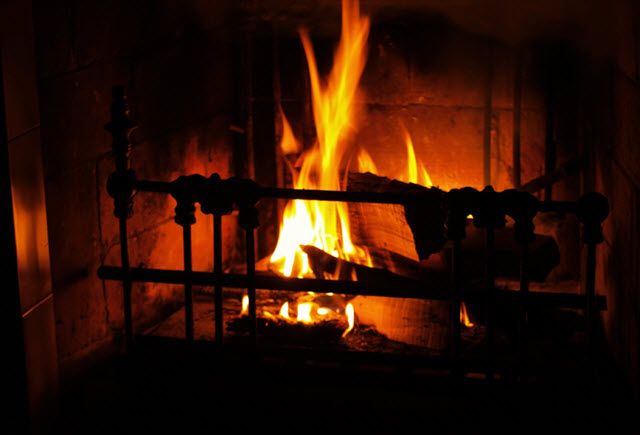This is the time of year that many people start thinking about getting comfortable next to a fire. Many people love fireplaces, and they find that they evoke feelings of warmth and comfort. But what price are we paying for having wood fires in our homes?
Wood smoke is associated with a number of chronic and acute health problems:
- Asthma
- Bronchitis
- Upper respiratory infections
Older adults and children under 18 are more sensitive to the health effects of wood smoke. Older adults are more likely to have heart disease and lung disease, and they suffer effects of wood smoke at lower levels than in healthy adults. Children have smaller lungs, and they also suffer the effects of wood smoke at lower levels.
Pollutants in wood smoke
Wood smoke contains a large number of compounds and gases that are dangerous for health:
- Particulate matter: These are small invisible particles that can easily travel deep into your lungs where they cause irritation and inflammation.
- Carbon monoxide – This gas is poisonous at high levels, but also has health effects at lower levels.
- Volatile Organic Compounds (VOCs): These compounds have been associated with long term health effects and in some cases cancer.
- Polycyclic aromatic hydrocarbons (PAHs) – These are compounds that are formed during combustion. Benzo[a]pyrene is one of these compound and has been associated with cancer. Benzo[a]pyrene is also one of the components of cigarette smoke. In fact, cigarette smoke is quite similar to the compounds found in wood smoke.
Making changes for healthier air
The air you breathe is an important part of a healthy lifestyle. It is important to try to ensure that the air you breathe in your home is clean and free of pollutants that could harm your health. Below are a few tips:
- If you have a wood fireplace, consider buying a gas insert. Gas burns much cleaner than wood.
- Replace your old fireplace with a new high efficiency fireplace. The high efficiency fireplaces can burn up to 90% cleaner.
- Burn only dry wood. Green wood releases more pollutants than green wood.
- Burn responsibly and limit the number of wood fires. Avoid burning wood on windy days. Your lungs will thank you!

